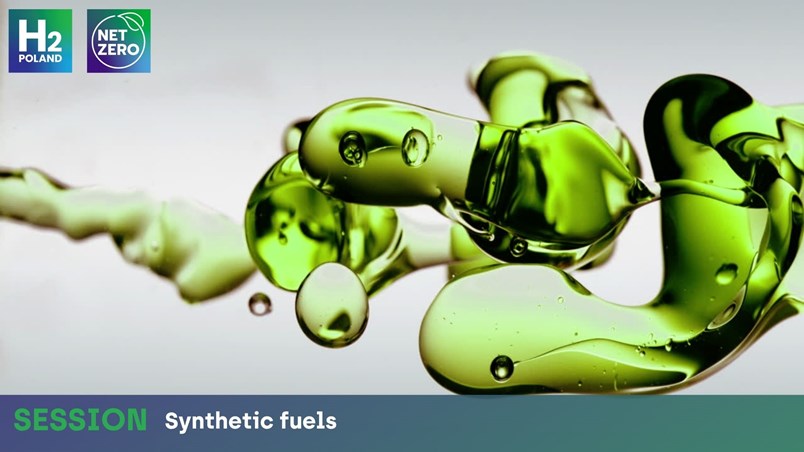Welcome to the session "Synthetic fuels"

Session
Synthetic fuels
Renewable hydrogen is an 'almost' perfect way to store energy. But as is usually the case in life, 'almost' makes a huge difference.
Unfortunately, due to its physical and chemical properties, hydrogen is an extremely difficult medium to handle logistically (transport and storage). The use of synthetic fuels produced from green (electrolytic) hydrogen can be a very attractive form of chemical energy storage. The group of synthetic fuels mentioned includes in particular: SNG (Synthetic Natural Gas - i.e. methane in practice), methanol, DME (dimethyl ether), ammonia or F-T fuels (higher hydrocarbons obtained by Fischer-Tropsch synthesis).
The use of the above products in the economy will eliminate a number of inconveniences associated with the use of pure hydrogen. Synthetic fuels are obtained by catalytic chemical synthesis processes. Of the chemical syntheses listed above, those that use CO2 as a feedstock in addition to hydrogen are particularly noteworthy.
These technologies are called CCU (Carbon Capture and Utilisation) or Power-to-X and involve both the use of CO2 removed from the production processes (flue gases and post-process gases) and CO2 separated directly from the atmosphere. Key issues for the industrial implementation of these syntheses are their technical feasibility and economic viability.



